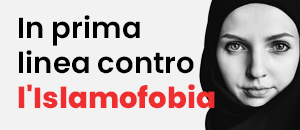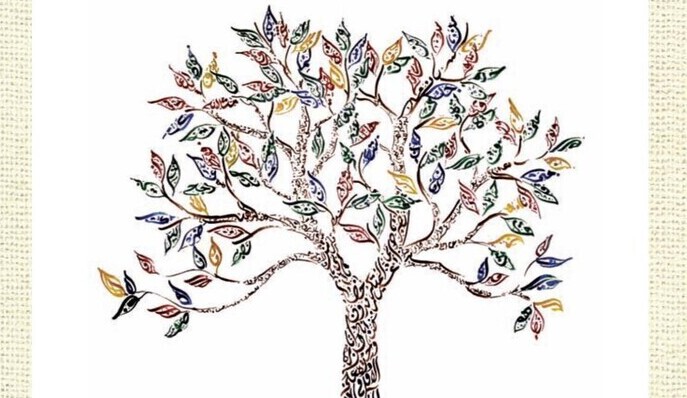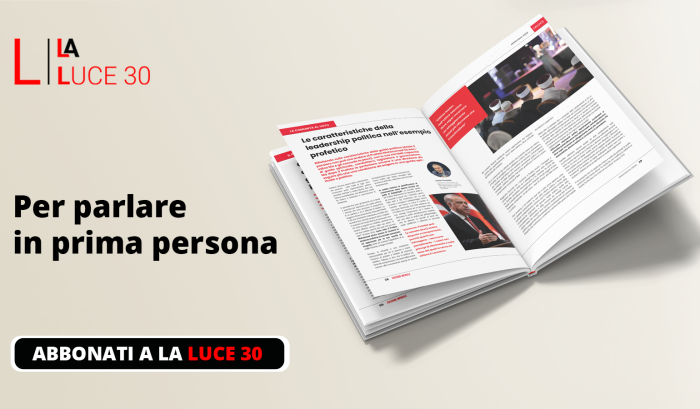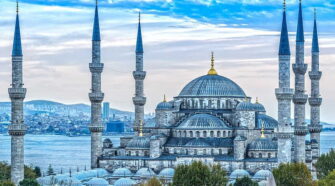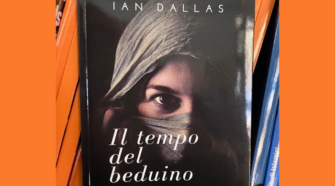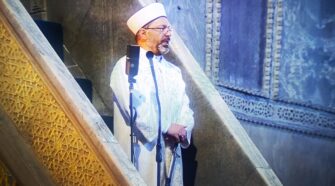İbrahim Özdemir is a professor of philosophy at Uskudar University, Istanbul, Turkey. Presently, he is a visiting professor at Clark University, Worcester, MA.
His major is environmental philosophy and ethics; his academic interests include environmental philosophy and ethics, ecology and religion, practical ethics, philosophical counseling, critical thinking, and Islamic philosophy.
He was a member of the drafting team of the Islamic Declaration for Global Climate Change (2015). Presently, he was assigned as a member of the core and draft team to write and finalize Al-Mizan: A Covenant for the Earth to be presented to the UN.
His books include:
Globalization, Ethics and Islam, Ian Markham and İbrahim Özdemir, Aldershot, Ashgate, 2005.
The Ethical Dimension of Human Attitude Towards Nature, second edition, Insan Publications, Istanbul, 2008;
Rumî and Confucius on Meaning of Life, Amazon, New Jersey, 2020;
Care for Creation; An Islamic Perspective, Viverealtrimenti, 2022.
Assalamu Alaykum Professor Özdemir, you have just published your last book ‘Care for Creation; An Islamic Perspective’. Let me ask you when you have started with your environmental activities.
Wa Alaikumu-Assalam. Thank you very much. In retrospect, I understand it all started in my childhood very well.
I grew up in a small village as a child of a farmer. I enjoyed the beauty of the natural environment with all its richness. When I saw first but unfortunately, the last wild wolf in my life, I was almost seven years old. Then, I could still drink the water of the creeks as it was crystal clear.
Later, I learned that Rachel Carson was writing her seminal and groundbreaking book Silent Spring in the same years.This humble book sparked and triggered many creative and sensitive minds to look at emerging environmental problems in a new way.
Now, I have four children, two granddaughters, Dila and Safiye, and a grandson, Yusuf Taha. I never thought that my descendants might not enjoy the same kind of life that I had in my childhood. It seems they live in a different world. I have concerns about their future and the world they will live in. Therefore, caring for the environment and generation next is a moral imperative for me.
Could you please briefly introduce your book ‘Care for Creation’ to our readers?
Sure. Today, we are witnessing the overwhelming consequences of climate change over the globe. Floods, droughts, and as a result, domestic and international migrations because of climate change resulted in an awareness of climate. However, environmental awareness in Muslim communities is slow.
When confronted with new problems and challenges, Muslim scholars first looked to the Qur’an as the word and final message of God and then to the Sunna of the Prophet, which is considered a concrete example of the Scripture. Let me say living Qur’an. In the environment or natural world, we can apply the same method and find some foundation for preserving the environment or raising the environmental consciousness of Muslim societies. I think the Qur’anic emphasis on nature’s metaphysical and sacred dimension is an excellent example for our case.
When we look at the first chapters and the verses of the Qur’an, which were revealed in the Meccan period, we see that its primary purpose was “to awaken in man the higher consciousness of his manifold relations with God and universe.” Thus, by awakening in man a higher and deeper consciousness, firstly, it changes his overall worldview, then it constructs his image of himself; consequently, his attitudes, feelings, sentiments, and the patterns of his relationships with reality begin to change accordingly. All these should be considered because of Qur’anic Weltanschauung.
Thus, the Qur’an emphasized the metaphysical dimension of nature and replaced the pagan Arabs’ conception of nature with a new and vivid concept. Today, the Qur’an is ready to challenge the modern materialistic notion of nature, which is also dominant in Muslim societies through educational curriculum, let do not mention others, and to suggest and provide a more comprehensive and holistic approach to developing an environmental, ethical theory.
I firmly believe that once the metaphysical foundation for an environmental ethic is discovered within the Qur’anic value system, it will not be challenging to develop an ecological ethic on this basis. Furthermore, understanding the metaphysical dimension of the Qur’anic message will allow us to understand and appreciate the development of sensitive ideas and attitudes concerning the environment in the course of Islamic history. The first example of this, I think, is the behavior and attitude of the Prophet toward the environment.
The Prophet Muhammad, for example, in his practices and many of his Hadiths, attached great importance to planting trees, protecting existing ones, planting forests, and conserving existing ones. A’isha, one of his wives, said: “His character was the Qur’an.” His practices and conduct related to the conservation of the environment should therefore be considered from the Qur’anic standpoint. For us, his actions are sources of inspiration, constituting his Sunna or practices, which we are obliged to follow. To put it another way, as in all matters, the exemplar of Islamic conduct related to the environment and the person who displayed it most perfectly was God’s Messenger.
Since then, the Qur’an has presented the universe as a book to read and understand. Later, Muslim culture confided the term “the book of the universe” (Kitab al-kainat).
The moral implication from an environmental perspective is crystal clear for us: as we respect and care about the protection of the Qur’an, the revealed book, we also must care, respect, and protect the book of nature (the created and sustained book).
My book is a call to remind my Muslim sisters and brothers of their responsibility to care for creation; as Yunus Emre, the poet Sufi of the 13th century, said, “we love all creation for the sake of the Creator.”
Could you please explain how we can consider Islam a “genetically environmentalist religion”?
The Qur’an emphasizes that the natural world has not been created solely for humanity’s use. Even if the human being is the vicegerent of God on Earth, this does not mean that the whole of nature and its resources are designed for human benefit alone (55:10–12). Instead, it is a bestowed trust for human beings. The Prophet Muhammad, therefore, insisted, for example, on protecting animals and their kind treatment of them. His concern that they should be well treated, protected, and not abused or degraded is genuinely noteworthy. Care for the environment and all animals, and deep concern over climate change and its daunting consequences, are thus our moral responsibility as Muslims.
It seems that our responsibility to raise environmental awareness in Muslim societies has both theoretical and practical dimensions. Theoretically, we need to deal with the issues from the ontological, cosmological and epistemological perspective of the Qur’anic Weltanschauung. However, on the practical side, we also need to provide useable tools for interested groups, which will involve drawing from the best and most successful examples in the world.
We Muslims are faced with a choice between continuing to live amid environmental problems and handing the next generation a hellish place to live or rolling up our sleeves and working together to redefine our relationship with the environment. As the whole of creation is a bestowed trust to us, to strive to make the world a better place to live for ourselves, our children, our grandchildren, and all fellow creatures is a moral imperative.
I think an Islamic discourse on the environment is in the making. As a result of political and social problems in Muslim societies, priority is given to other issues.On the other hand, the power and control of the state still permeate everything, leaving no public space for the public to contribute to the solution of problems. When we look at the newly emerging literature on the subject, it is apparent that some new alternative ways of understanding and tackling environmental degradation are being offered. Firstly, they begin with a critique of the dominant Western worldview and concept of science. Then, they try to change the conception of reality and humanity’s place on the Qur’anic grounds. Thirdly, raising Muslim responsibility on individual and communal levels involves solving these problems. However, when we look at the literature on the subject and respective developments, we will see that we are still at the first stage.
In 2015, you were a member of the Islamic Declaration for Global Climate Change drafting team. Could you please introduce this initiative to our readers?
As you know, Pope Francis declared an encyclical on integral ecology on 18 June 2015. It has been welcomed not only by Catholics but many concerned people around the world. The Pope boldly reminded us that it is time “for the awakening of a new reverence for life, the firm resolve to achieve sustainability, the quickening of the struggle for justice and peace, and the joyful celebration of life” before it is too late.
As Muslim environmentalists, we issued a declaration on 18 August 2015 as part of the two-day International Islamic Climate Change Symposium in Istanbul.
Some commentators argued that the Islamic Climate Change Declaration could influence an even larger population than the Catholic decree.
It is a great honor to be a member of the drafting team for this declaration. As Muslim scholars, we wanted to exemplify the trend of faith-based climate activism further ahead of the U.N. climate change summit in December 2015.
The significant points of the Islamic Climate Change Declaration can be summarized as follows: the rejection of human greed for natural resources, respect for nature’s “perfect but delicate balance”, and recognition of the “moral obligation” to avoid waste.
Briefly, we called on 1.6 billion Muslims to engage on the issue of climate change and take bold actions to stem its worst impacts.
The declaration states that there is a deep irony that humanity’s “unwise and short-sighted use of these resources is now destroying the very conditions that have made our life on earth possible.” We asked ourselves,“what will future generations say of us, who leave them a degraded planet as our legacy? How will we face our Lord and Creator?”.
The declaration’s preamble begins with the doctrinal affirmation that God created the world. This is connected to the concept of oneness and tied to the unity of creation, giving credence to the idea that all humanity shares the planet.
The role of human beings as God’s Khalifah on earth, or stewards of God’s creation, forms a central tenet of the Islamic declaration on climate change since human beings have failed to live to their duty of stewardship and have corrupted and abused the earth instead.
The example of the Prophet Muhammad (PBUH) and his lifestyle is brought forward to highlight practical manifestations of Islamic principles of conservation and eco-friendliness
What happened since the Islamic Declaration for Global Climate Changewas drafted? How was it received in the Islamic world?
In Istanbul, we prepared and published the Islamic Declaration of Climate Change in 2015.
Pope Francis’ encyclical on climate change and its worldwide positive reception on the one hand, and the 2015 United Nations Climate Change Conference in Paris, has encouraged us, as Muslim environmentalists from different continents, countries, and backgrounds, to draft “the Islamic Declaration on Global Climate Change” in early June. The drafting committee was as follows:
- AzizanBaharuddin- Professor, University of Malaya, Malaysia.
- Fazlun Khalid, Founder of IFEE, UK.
- Ibrahim Ozdemir- Professor, Uskudar University, Turkey.
- Othman Llewellyn- Environmental Planner, Saudi Arabia.
- Abdelmajid Tribak- Professor and Head, Division of Environmental Programmes, ISESCO, Morocco.
- Fachruddin Mangunjaya- Vice Chairman, Centre for Islamic Studies, Universitas Nasional, Indonesia
Then, the initial draft was circulated widely for consultation with all prominent Muslim scholars and environmentalists for review and comments. Professor Syed Hossain Nasr made valuable comments but, most importantly, very encouraging words for taking such a humble but significant initiative.
We decided to hold a symposium on the subject in Istanbul and invite experts and members of NGOs to debate and discuss the declaration meeting on the one hand to seek broad unity and ownership from the Islamic community around the Declaration. Moreover, to further discuss the amplification of messages and mobilization of various actors and groups around COP 21 and in the future.The senior international development policymakers, leaders of faith groups, academics, and other experts attended the symposium.
The symposium also provided opportunities to connect with leaders from other faiths and secular organizations and promoted inter-faith and cross-movement cooperation around aligned and joint messages.We hope that it may highlight Muslims’ future role and contribution to the climate movement and present ample communications opportunities.
The Islamic Climate Change Declaration was issued on August 18, 2015, as part of Istanbul’s two-day International Islamic Climate Change Symposium. Some commentators argued that the Islamic Climate Change Declaration could influence an even larger population than the Catholic decree (Merchant, 2015).
It was a great honor to be a member of the drafting team of the declaration. As Muslim scholars, we want further exemplify the trend of faith-based climate activism ahead of the U.N. climate change summit. The significant points of the Islamic Declaration on Global Climate Change can be summarized as follows:
- rejection of human greed for natural resources,
- respect for nature’s “perfect but delicate balance,”
- recognition of the “moral obligation” to avoid waste.
Briefly, we called on 1.6 billion Muslims to engage on the issue of climate change and take bold actions to stem its worst impacts.
The declaration states that there is a deep irony that humanity’s “unwise and short-sighted use of these resources is now destroying the very conditions that have made our life on earth possible”.
We asked ourselves if we do not change our short-sighted perception and attitude towards the planet, “what will future generations say of us, who leave them a degraded planet as our legacy?How will we face our Lord and Creator?”.
It was welcomed all over the world. The New Yorker, Nature, Newsweek, and many other major journals and magazines covered and commented on the declaration.
Then, we translated it into all major languages. It was a wake-up call to Muslim leaders, NGOs, and the public. Although some Muslim countries have political, social, and economic problems, tragedies, and catastrophes, we can see arise in public awareness.
A recent example was the Second International Seminar on Environment, Culture, and Religion – Promoting Intercultural Dialogue for Sustainable Development held in Tehran and hosted by the Iranian government. Then, I attended a joint event in Cape Town, which Muslims organized. What is more critical, members of other faiths were invited, too.
Did you see any remarkable improvement in the environmental policies of the countries with a traditional Islamic population since 2015?
Yes, there have been developments, but it is not enough. In the recent two decades, we have had many scholarly works, including M.A. thesis and Ph.D. thesis, and literary works. They are reasonable indications of environmental awareness. Moreover, there are Green Mosque Projects in Europe, Turkey and Indonesia.We have to talk more on the issue and spare the message that “we care for creation.”
What do you think about the case of Indonesia?The most populous Muslim country in the world implementing an ambitious environmentalist agenda?
Indonesia, with approximately 207 million Muslims living in the country, is the world’s largest Muslim population.
Nevertheless, other forms of Muslim climate activism are evolving. Apart from these influential organizations and their top-down activities, bottom-up grassroots initiatives have emerged among Muslim students in Indonesia.
Majelis Ulama Indonesia (MUI) is the central umbrella organization of Islamic scholars and clerics in Indonesia. MUI’s councils issue fatwas: non binding legal opinions. Some of the fatwas issued by the MUI and its local councils relate to climate change mitigation, as discussed below. Moreover, in 2011, MUI established a specialized branch focusing on environmental challenges, the Institute for Awareness on Environment and Natural Resources.
Nahdlatul Ulama and Muhammadiyah are Indonesia’s most significant and oldest Muslim mass movements and constitute highly influential Muslim civil society organizations. Muhammadiyah includes around 6118 mosques, 5519 schools, 172 universities, and 457 hospitals, while Nahdlatul Ulama emphasizes education and covers around 17,000 boarding schools.
The original focus of these organizations is on promoting Islam, socioeconomic development, and education. Their engagement with environmental protection is more recent. It has been encouraged by two developments: (a) Indonesian environmentalists seeking to engage these organizations for environmental protection and (b) the government’s agenda to address climate change, placing a specific focus on the reduction of emissions from deforestation and forest degradation. As the three organizations offer specific network channels (e.g., local schools and mosques) to reach local communities, they have become strategic partners in the government’s carbon emission reduction plans, engaging in the three fields mentioned above: public campaigning, value dissemination, and materialization.
These organizations have undertaken public campaigning activities, publishing statements that ask the government to act against environmental degradation and to stick to international climate goals. Moreover, to increase ecological awareness among the population, Muslim religious leaders have circulated eco-dakhwas: public messages connecting environmental protection with traditional ideas in mainstream Indonesian Islam and culture.
How do you intend to promote your new book, available in paper and digital formats?
There is a growing awareness among young Muslims. They realize that they will live in the future, and current politicians try to save the day if they can. So, they have to think about our society’s daunting problems deeply. Therefore, they want to see climate change and how we can mitigate its effects on our future. My book would tell them we have to care about creation as it has been bestowed to us by God. So, while we will promote my book using social media, I rely on concerned readers and environmentalists to share it widely on their networks and lists.
I am doing the same. When there is a new article, blog, book or documentary, I will immediately share it on social media. Sometimes, I wrote short reviews. We need creative and critical studies on climate change and environmental awareness.
So, the book is timely. I hope interested readers will welcome it.
Why and how do our faiths matter when caring for our environment?
The role of religion in shaping society and nature is evident everywhere. Although with the enlightenment project, materialistic and positivistic philosophical currents had tried to undermine the role of religion in modern society and human life, religion is still with us. Peter Berger, who declared himself a humanistic sociologist throughout his career, confesses that what he and “most other sociologists of religion wrote in the 1960s about secularization was a mistake”.
Berger underlines in his seminal book The Sacred Canopy that “every human society is an enterprise of world-building” and “religion occupies a distinctive place in this enterprise” (Berger, 1967).
Therefore, “religions might be influential enough to help shift whole societies in more environmentally benign and sustainable directions”.
Providing people with a sense of meaning and purpose is arguably one of the religion’s most powerful but least appreciated assets.
A sense of purpose can unify entire societies around national goals. Ritual communication has a special place in the movement to create sustainable communities because it has long had the effect of protecting the natural environment. Therefore, “religious and spiritual traditions have a great deal to offer in creating cultures of sustainability”.
Finally, have you any environmentalist advice for the Italian ummah?Is either something that could be done at the grassroots or an institutional level?
Pope Francis Laudato Si’ was a call for all of us. A Pope invited members of all religions, faiths, and even secular people to join their energies to respond to the challenges of Climate Change.
The first striking feature of Pope Francis’s encyclical is the title Laudato Si’ (Praise be to you, my Lord). The encyclical proposes a paradigm shift concerning the tradition and understanding of the consumer-oriented culture of modern times.
This dominant modern culture led us to see natural resources as commodities that can be bought, sold, and consumed as goods and for their material value only. Pope Francis, relying on the Abrahamic tradition, reminded all humanity that the first step of a new paradigm and new understanding is to see the whole creation as God’s bounties that deserve praise and gratitude.
My Italian fellow Muslims can present and share Islamic values regarding nature. They must show the world with their actions that we care for creation. As Yunus Emre, the poet Sufi of the 13th century, said, “we love all creation for the sake of the Creator.”
I would like to remind them we are no longer living in a monolithic world. Moreover, Jews, Christians and Muslims comprise more than half of the world’s population today. Better understanding, communication and peaceful relations between our communities are excellent and essential for our well-being and the well-being of the world at large.
Moreover, environmental, social, and economic threats are aimed at everyone without discrimination, whether Christian, Jew, Hindu, Buddhist, Muslim, and secular. Therefore, we must cooperate and join our energies for a better future. As the threat is common, the response must be common. This will empower the spirit of solidarity and cooperation in our respective societies.
In this spirit, I have been working on the Qur’anic environmental ethics and consulting the Prophet Muhammad’s (PBUH) teachings (Sunnah) and Islamic culture on positive attitudes and behaviors to the environment, climate change, and sustainable development.
I believe it is time for true believers in the God of Abraham to learn to unite as partners in peace. Then, we can move our societies and world from “compatibility to compatibility; from intolerance to tolerance, seeking justice, mercy, and compassion for all.”
The road ahead for Muslims is clear: To understand the universe and themselves with an ecological reading of the Qur’an as a part of the same story, interconnected and interdependent. Just as everything has been created and sustained by al-Mizan (balance, measure, and purpose), Muslims must develop a new economic and financial system that is sustainable and based on justice and equality.
If we believe that God created this incredible universe that we live in, it is morally imperative for us to care for creation.
The book Care for Creation, an Islamic Perspective has been published both in paper and digital format.
To buy it in paper format, click here. To buy in digital format, click here.



